- Our Models
- ServicesHesitant in service?
Get in touch with us with your business problem and we’ll consult you on the suitable service solution.
- SolutionsApplicationsLegacy SupportOther Microsoft SolutionsPower Platform ConsultantsAzure ConsultantsAzure Developers
- Industries
- Our Company
 About Us
About UsLearn more about our HireDynamicsDevelopers portal and the team behind it.
Case StudiesRead successful stories from our clients across various industries.
ServicesFind the right service according to your specific business needs.

- Resources
- Our Models
- ServicesHesitant in service?
Get in touch with us with your business problem and we’ll consult you on the suitable service solution.
- SolutionsApplicationsLegacy SupportOther Microsoft SolutionsPower Platform ConsultantsAzure ConsultantsAzure Developers
- Industries
- Our Company
 About Us
About UsLearn more about our HireDynamicsDevelopers portal and the team behind it.
Case StudiesRead successful stories from our clients across various industries.
ServicesFind the right service according to your specific business needs.

- Resources
A Guide on Dynamics 365 Business Central Implementation
Updated: March 19th, 2025 by Ivan Farafonov
Running a business is almost always about a large number of documents, papers and transactions. We know it is the most common but at the same time the most difficult way to manage your company. And now it can be easily improved with a guide on Microsoft Dynamics 365 Business Central implementation.
Dynamics 365 Business Central holds a market share of about 1.13% in the Enterprise Resource Planning (ERP) category, ranking it 15th among its competitors. The leading competitors in this segment are Microsoft Dynamics with 26.44%, Workday with 11.58%, and SAP ERP with 11.11% market share.
The main reason and goal of this implementation guide is to provide an extended overview of Microsoft Dynamics 365 Business Central and walk you through all implementation steps. From understanding its value to finalization of the full deployment process, ensuring empowerment of business and maximization of its profits.
This full implementation guide will describe improvement of processes and integration into the types of businesses that can benefit from Business Central implementation. Provide an overview of the implementation process steps, outline the personnel roles involved in the implementation, and offer best practices to ensure a fast and successful deployment with minimization of spendings and costs.
Implementing Microsoft Dynamics 365 Business Central is not just about deploying software; it’s about aligning technology with business goals. A successful implementation ensures seamless integration, streamlined operations, and a scalable foundation for growth.
D365 Solution Developer & Business Central Developer
Types of Businesses that will Benefit From Business Central Implementation
Microsoft Dynamics 365 Business Central is a universal solution that can be adapted to meet the requirements and needs of a variety of companies in different industries. While it is designed to make benefits for small and medium-sized enterprises, its flexibility and scalability also make it suitable for larger enterprises that require a more specific, yet affordable, ERP system. Let’s check the examples of the types of businesses that can benefit from Business Central implementation:
Small and Medium-sized Business Companies
Dynamics 365 Business Central implementation suits best particularly for companies that require a small unified, cost-effective solution to manage multiple business functions in one simple platform. The software’s scalability and flexibility allow businesses to start small and expand as needed, making it a perfect fit for growing companies, as it can be customized for almost any needs.
Example: A small company with less than 100 employees may use Business Central ERP to manage basic inventory operations, sales orders, and finances in one system, reducing the need for separate tools.
Professional services companies
Companies that provide services, such as consulting, marketing or legal practices, can receive advantages of Dynamics 365 for Business Central implementation to manage project-based processes, client documentation creation, and financial reporting. The platform helps service businesses to track resources, timelines, and financials for each client and project to ensure profitability and cost reduction.
Example: A project management consultancy may use Microsoft Dynamics 365 Business Central implementation to track billable hours, project costs, and client invoicing, all within one platform.
Distributors and Retailers
For businesses dealing with basic inventory management, sales, and procurement, Microsoft Business Central implementation offers a range of features for tracking inventory, managing sales and purchase orders, and improving customer relationships. The solution’s integration with supply chain management tools helps distributors and retailers streamline operations.
Example: A wholesale distributor (such as health and wellness supplements, home office equipment, fitness and sports equipment, adventure and outdoor gear, etc.) can track inventory levels in real time, manage multiple warehouses, generate sales orders and invoices for customers.
Small manufacturing companies
Small manufacturers can benefit from Business Central solutions for production planning according to actual inventory tracking, purchasing, and financial tracking. The system helps businesses optimize production schedules, manage raw material inventory, and track manufacturing costs through purchase and sales transactions.
Example: A small-to-medium-sized manufacturer (such as brewery production, food and beverage production, furniture manufacturer, pharmaceutical manufacturer, etc.) can use Dynamics 365 Business Central to plan and track production cycles, ensure that materials are available for production, and monitor cost efficiency.
Financial services and real estate companies
With its strong financial management capabilities, Microsoft Dynamics Business Central implementation can benefit industries like finance, insurance, and real estate. Businesses in these sectors can track and manage transactions, provide operations according to the straight rules, and provide reporting insights, all of which Business Central ERP can offer.
Example: A real estate company could use Microsoft Dynamics 365 Business Central implementation to track property sales and provide detailed financial reports for property management.
Our Successful Case Study
- Denmark
- Automotive Lubricant Manufacturing
- Part-time engagement
- 2 MS Dynamics 365 Developers
- Microsoft Dynamics 365 Business Central Cloud
Our client is a Danish company that produces lubricants for the automotive and industrial sectors. In 2021, the team made a huge upgrade and created its brand of lubricants. Having entered the export market, they needed additional tools to optimize efficiency. This is where Microsoft Dynamics Business Central and our highly qualified developers came to the rescue.
Together with 2 specialists, they set up an account in the cloud version of Business Central 365, which allowed us to manage export-related processes seamlessly. Thanks to the guidance and experience of our qualified Microsoft Dynamics 365 developers, our client successfully entered the export market with their new brand. Implementing the cloud version of Business Central 365 streamlined their operations.
Business Central Implementation Steps
Implementing Microsoft Dynamics 365 Business Central requires careful planning, precise information gathering and a structured approach to ensure the system will align with business objectives and requirements and deliver maximum value to business. In almost any case, the implementation process consists of several key stages and steps, each critical to the overall success of the project. Below are the essential stages with the minimal time spendings for a small company without customizations in a Business Central implementation:
Planning and Requirements Gathering
2-4 weeks
The planning and requirement analysis phase is essential for understanding the business goals, identifying pain points, and setting clear expectations. During this stage, the project team works closely with stakeholders to outline the scope, timeline, and resources required for the project.
Activities:
- Define business requirements
- Identify key performance indicators (KPIs)
- Set project goals and scope
- Establish budget and timeline
System Design and Configuration
4-6 weeks
Once the business requirements are defined, the next stage involves installing and configuring the system to meet the needs of the business. This includes setting up workflows, user roles, and security permissions, as well as customizing the system based on the organization’s unique processes.
Activities:
- Configure chart of accounts, workflows, and processes
- Design custom dashboards and reports
- Define data migration strategy
- Identify necessary integrations with other systems
Data Migration and Testing
4-6 weeks
In this stage, data from existing systems (e.g., customers, orders, vendors, inventory) is migrated into Business Central. Data quality is crucial, so businesses must thoroughly test the migration process to ensure data accuracy.
Activities:
- Data cleansing and validation
- Import historical data into Business Central(e.g. configuration packages)
- Perform system testing and user acceptance testing (UAT)
- Conduct performance and load testing
Training and Change Management
2-3 weeks
A successful Microsoft Dynamics 365 Business Central implementation requires proper user training, preparations and change management in personnel. This stage ensures that employees understand how to use the new system for each department and are comfortable with the changes in their workflows.
Activities:
- Conduct role-based training sessions
- Provide support materials (guides, videos, FAQs)
- Establish a feedback loop for ongoing improvements
- Communicate changes to the broader organization
Go-Live and Post-Implementation Support
2-4 weeks
Once the system is configured, filled with data and users are trained to conduct usual processes, the system goes live. During this phase, users begin interacting with the system in real-time, and the implementation team provides support and gathers feedback to address any issues that might appear.
Activities:
- Monitor system performance and resolve issues
- Provide on-site or remote support for users
- Evaluate the success of the implementation against KPIs
- Tune-up configurations based on user feedback
Engaged Implementation Team
The success of a Business Central implementation depends heavily on the expertise of the implementation team. The composition of the team will vary depending on the specific needs of the business, including its size, industry, and complexity of workflows. Here is a table of key specialists involved in a typical Business Central implementation:
Specialist | Responsibilities | Why They're Needed |
|---|---|---|
Team lead / Project manager | Oversees the entire implementation process, manages resources, ensures milestones are met, and reports progress to stakeholders. | Ensures that the implementation runs smoothly, on schedule, and within budget. |
Business analyst | Gathers business requirements, defines project scope, maps out workflows, and identifies pain points, creates development documentation. | Create connections between business needs and the technical team. Essential for aligning the system with business goals. |
BC Consultant | Provides in-depth knowledge of Business Central solutions, advises on best practices, and configures the system accordingly. | Experts in Microsoft Dynamics 365 Business Central implementation. Key to translating business needs into system configuration. |
BC Developer | Customizes and develops new functionalities, modules, and integrations within Business Central. | Necessary for creating custom features and ensuring that Business Central ERP integrates well with other business systems. |
Data migration expert (Optional) | Ensures accurate and efficient data migration from legacy systems to Business Central. | Ensures that historical data is correctly imported and available for use in Business Central. |
Change management lead (Optional) | Manages the transition to Business Central, including training, communication, and addressing user concerns. | Critical for ensuring smooth adoption and minimizing resistance to change. |
Support and IT Admin | Provides ongoing support and maintenance post-implementation, troubleshooting and resolving technical issues. | Ensures that the system continues to function optimally after go-live and supports users with technical issues. |
Need help with Dynamics 365 Business Central implementation?
Contact us to hire reliable experts!
Dynamics 365 Business Central Best Practices for Implementation
To ensure a fast and successful Microsoft Dynamics 365 Business Central implementation without any issues, it’s crucial to follow implementation best practices throughout the whole deployment process. Below are some commonly used recommended best practices, to help businesses make the most out of their Business Central implementation:
Set Clear Objectives
Before starting, establish clear business objectives and pain points. This will help the project team stay focused and aligned on what the system is intended to achieve. For example, if your goal is to improve financial reporting, ensure that Microsoft Dynamics 365 Business Central implementation includes specific features for financial analysis and reporting.
Invest Time in Data Preparation
Data is the base of any ERP system. Invest time in cleansing, validating, and formatting your data before migrating it to Business Central. For example, ensure customer and vendor records are up-to-date and standardized according to the system mapping to avoid issues during the migration.
Conduct Thorough Testing
Before going live, thoroughly test the system. This includes user acceptance testing (UAT), integration testing, and performance testing. For example, a retail business may test the integration between Business Central ERP and their point-of-sale system to ensure accurate sales order processing.
Provide Adequate Training and Support
Offer comprehensive training and create a user guide to help employees understand the new system. Provide ongoing support to ensure users feel confident and empowered to use Business Central solutions effectively. Testing usually involves consultants and users. For example, create a series of video tutorials for employees covering everything from basic navigation to advanced features like financial reporting.
Monitor and Optimize Post-Go-Live
Once the system is live, continue to monitor its performance, gather feedback from users, and make adjustments as needed. For example, use Power BI to track how users are adopting the system and identify any inefficiencies in workflows and amounts.
Conclusion
By following these implementation guidelines, businesses can achieve a fast, painless and successful Dynamics 365 Business Central implementation that drives efficiency, gathers strict decisions, and enhances overall business performance. Microsoft Dynamics 365 Business Central offers the flexibility, scalability, and functionality needed to optimize business operations, making it a powerful tool for companies of all sizes and ease all work processes.
If you want to implement the software easily and effectively, hire Microsoft BC developer. A reliable expert on your side helps to set up and customize all features for your smooth work.
Need Our Help? Get in Touch with Us for Comprehensive Consultation!
Our experts are ready to help you with the process of implementing Business Central in your work. With this approach, you spend a minimum of time and get a high-quality and highly customized result. Contact us to get started right now and choose a reliable expert for your tasks!
Simplify implementation with Business Central consultants!
Some of Our Business Central Experts
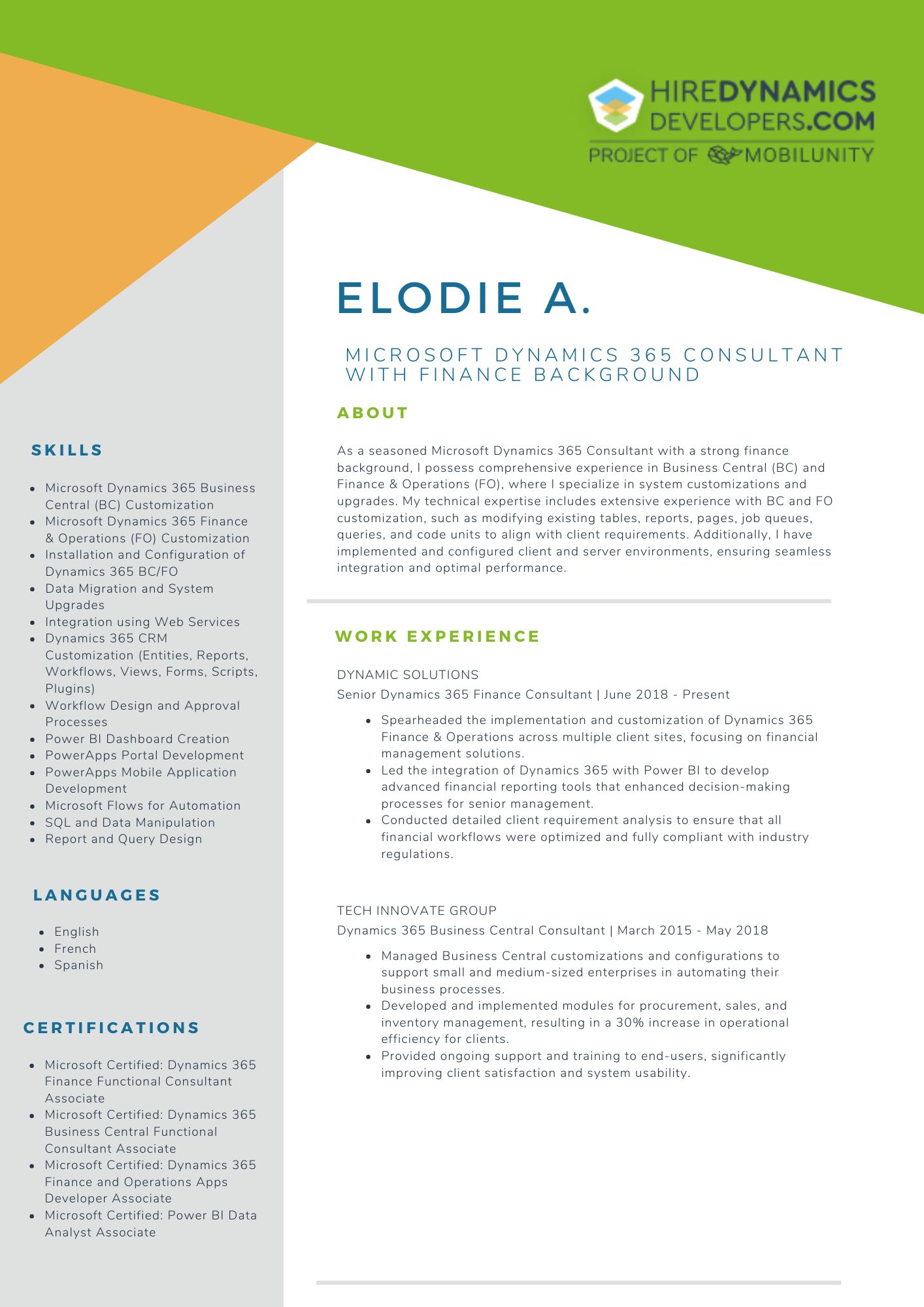
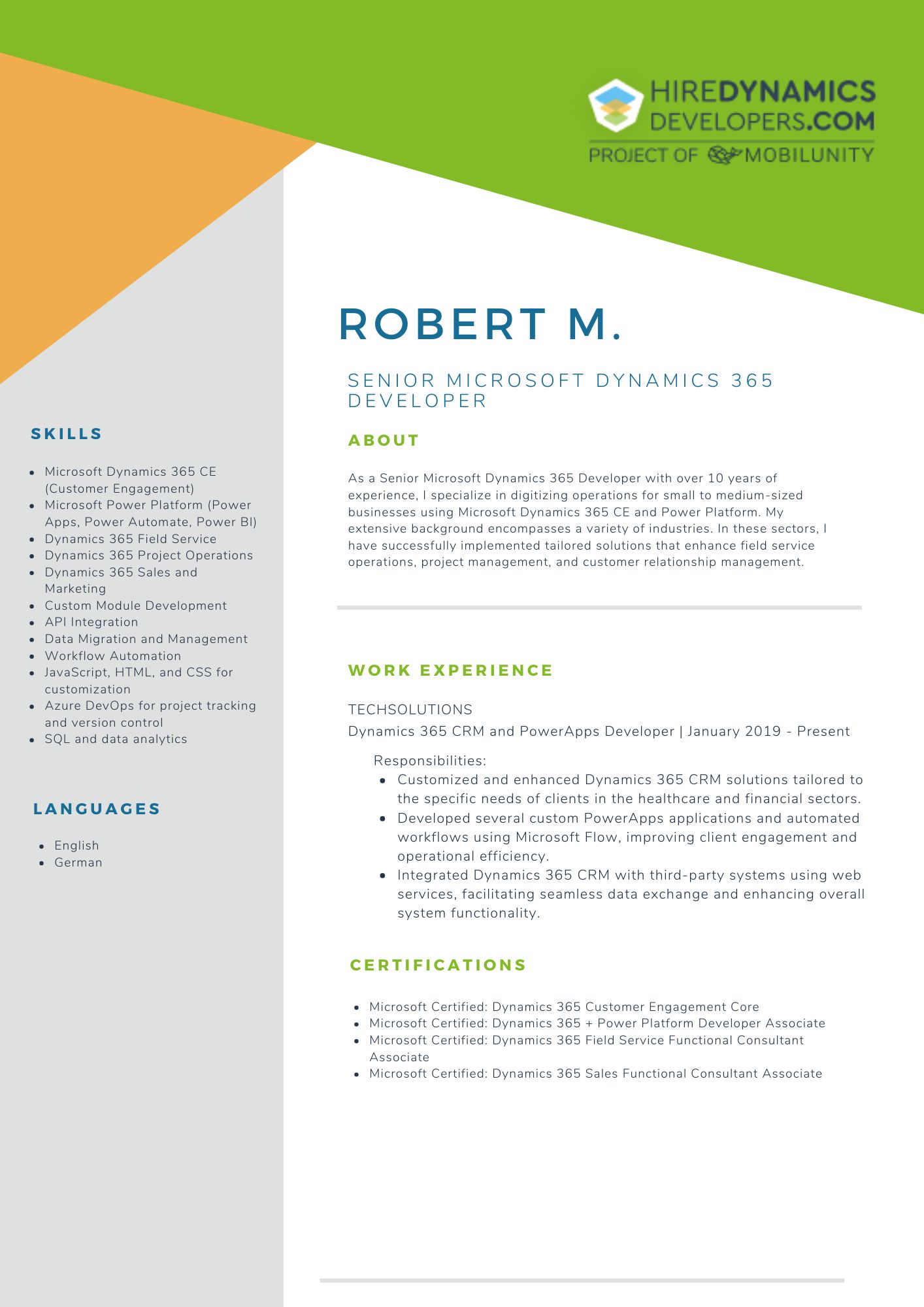
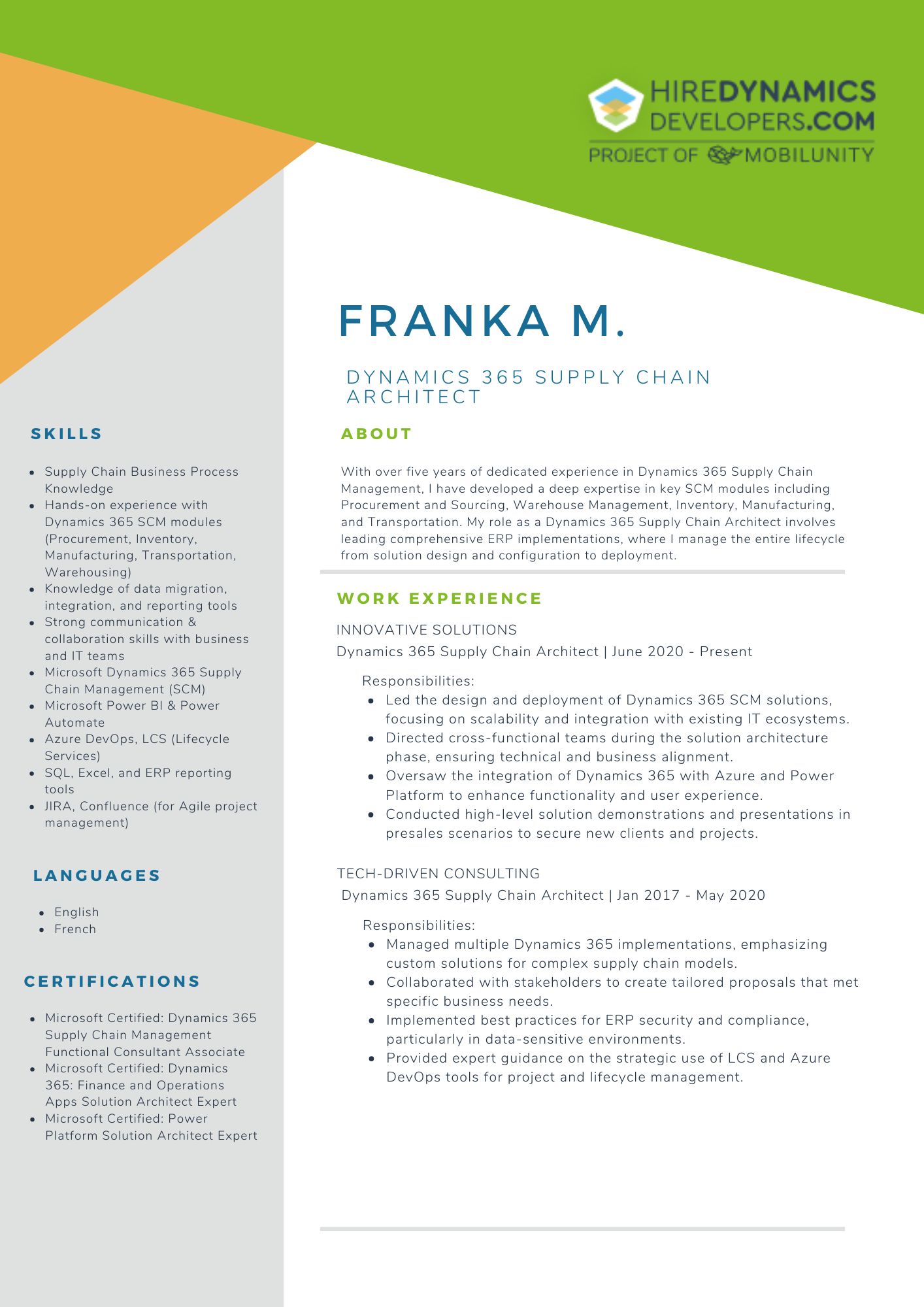
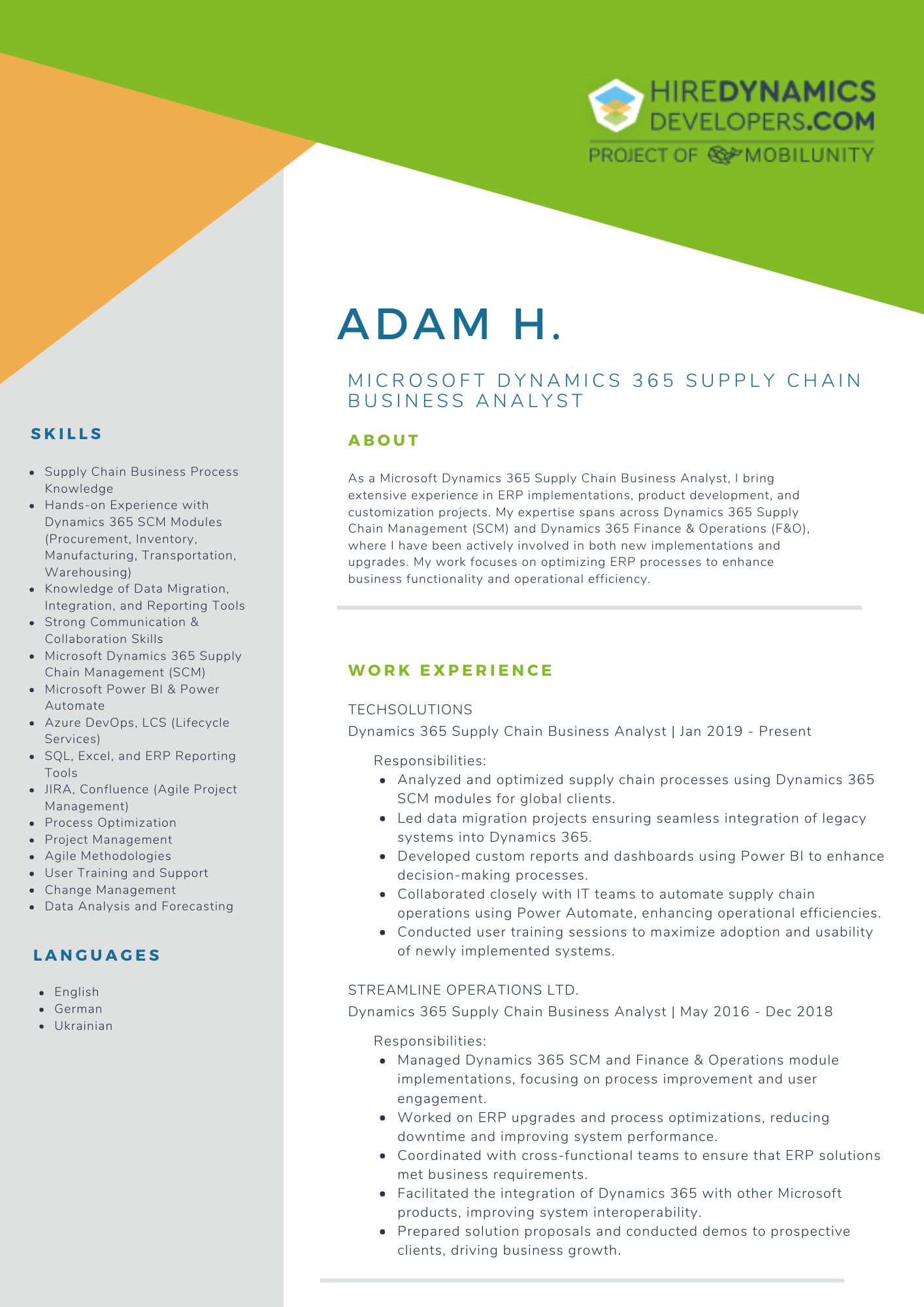
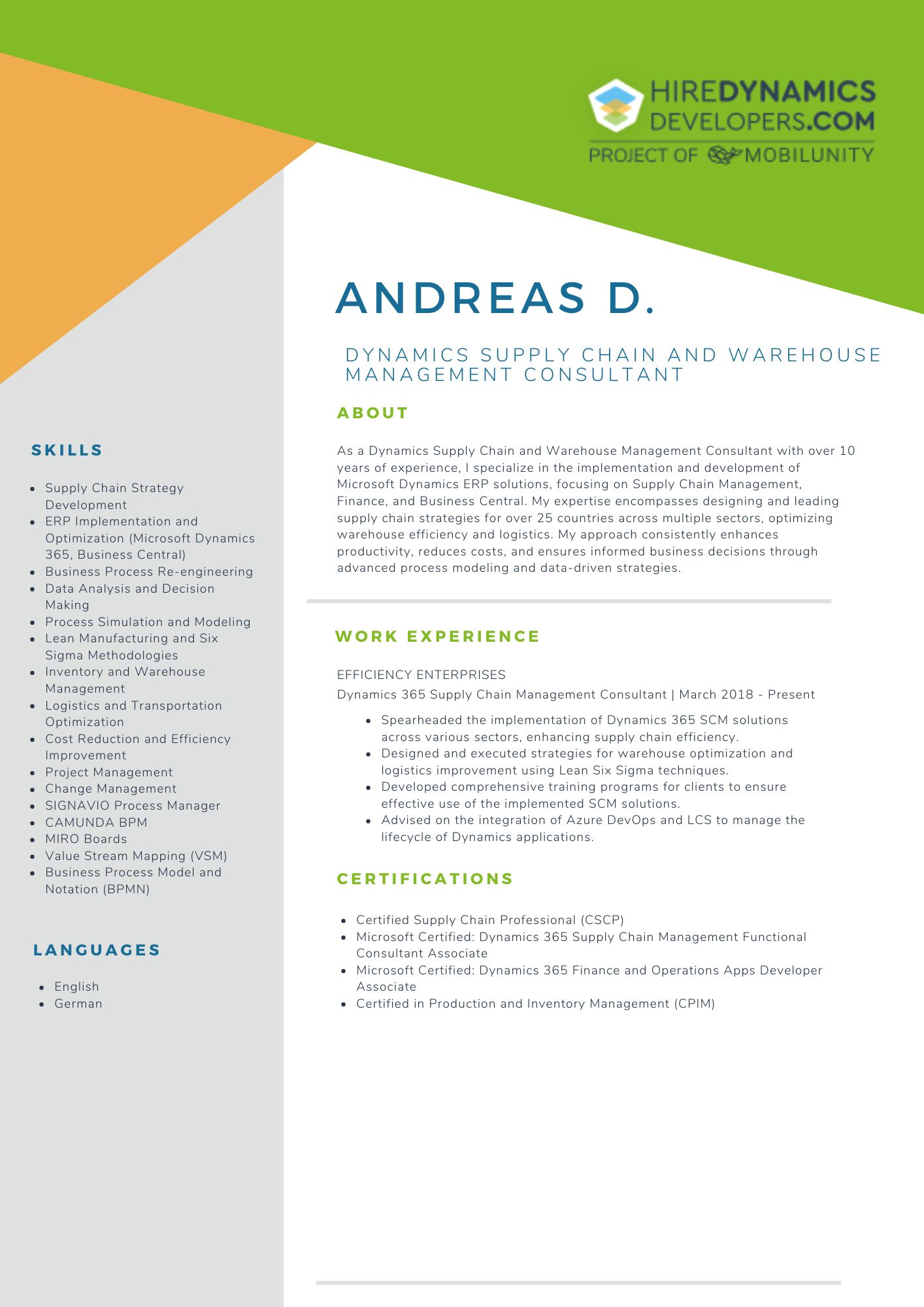

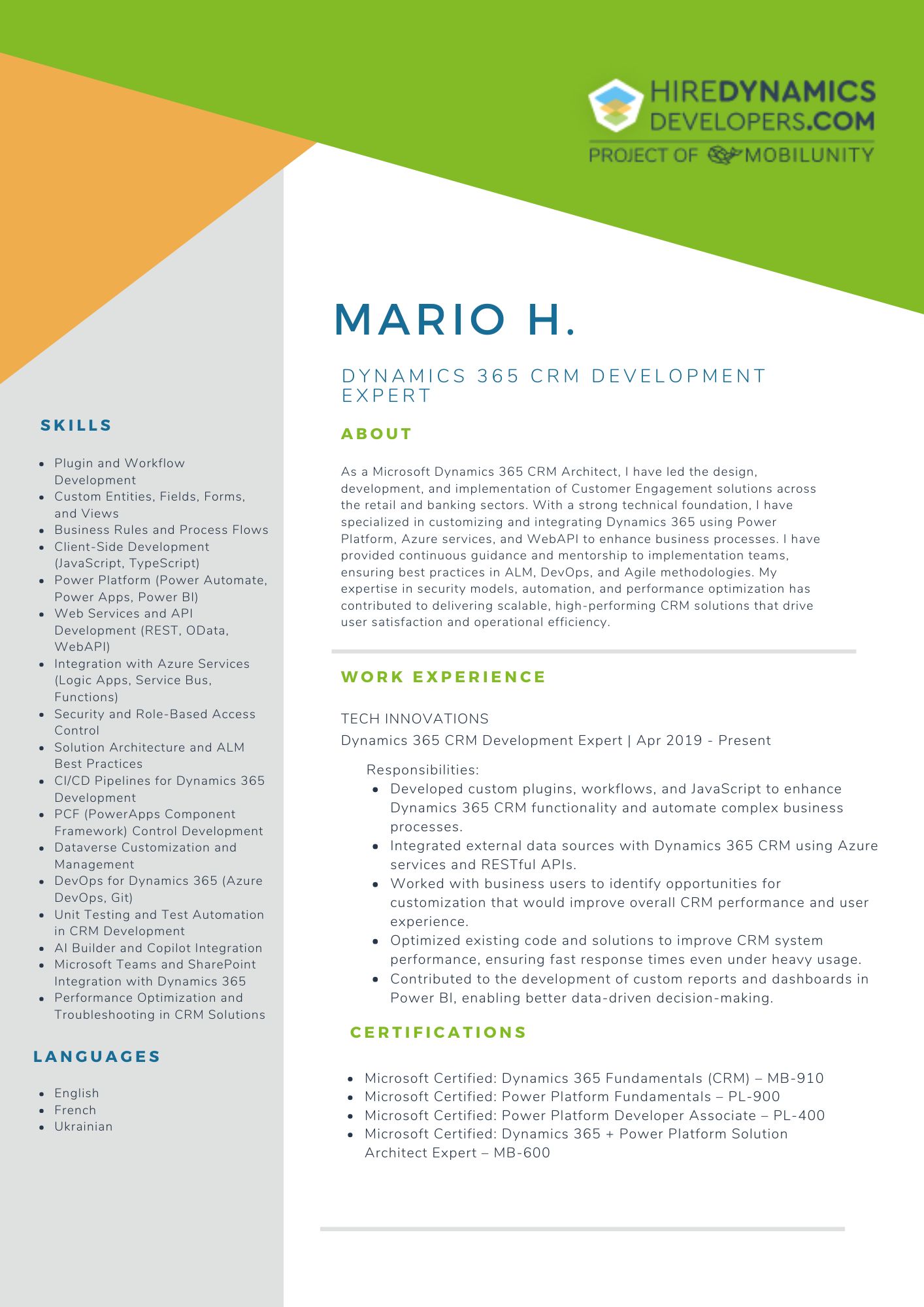
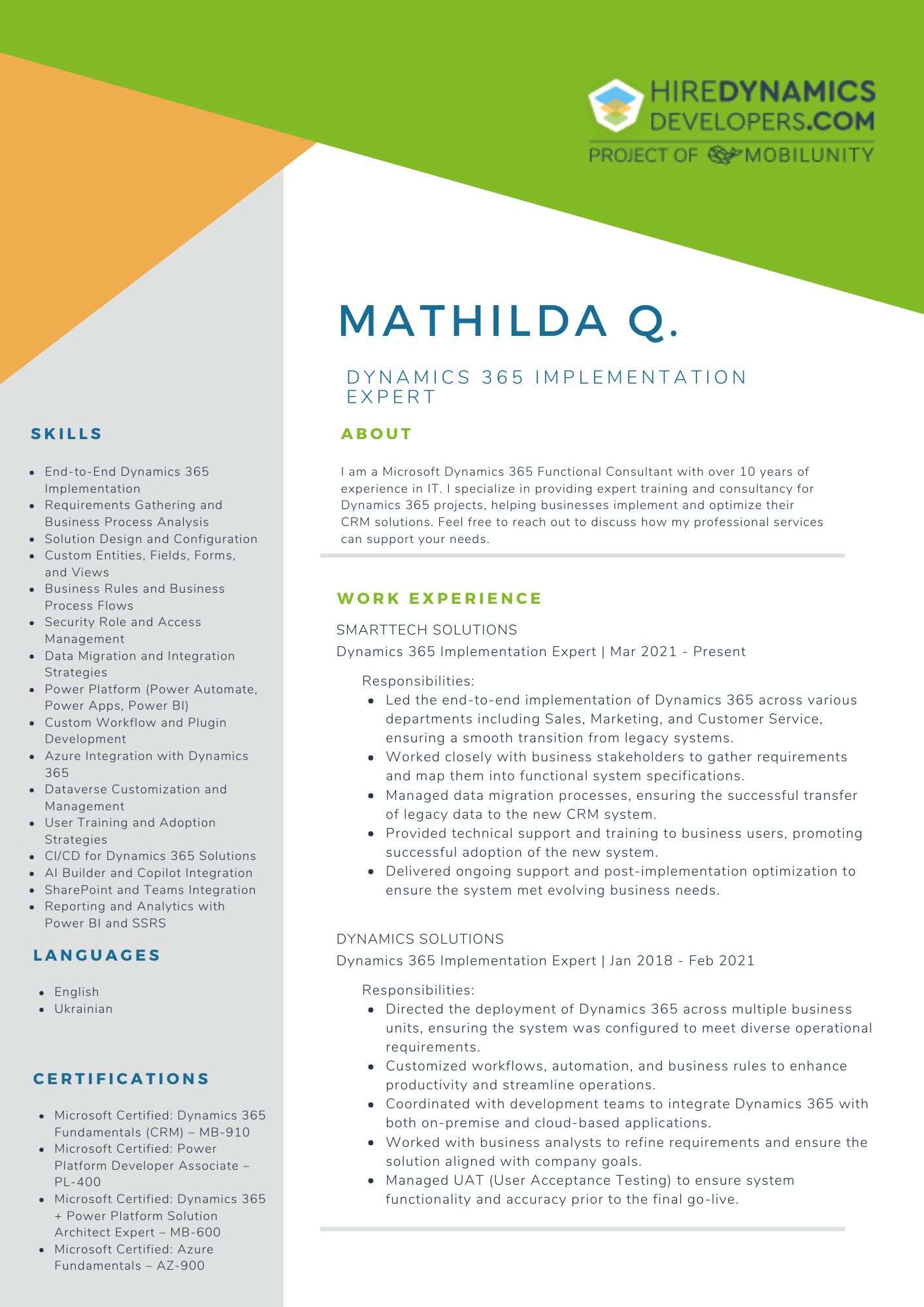
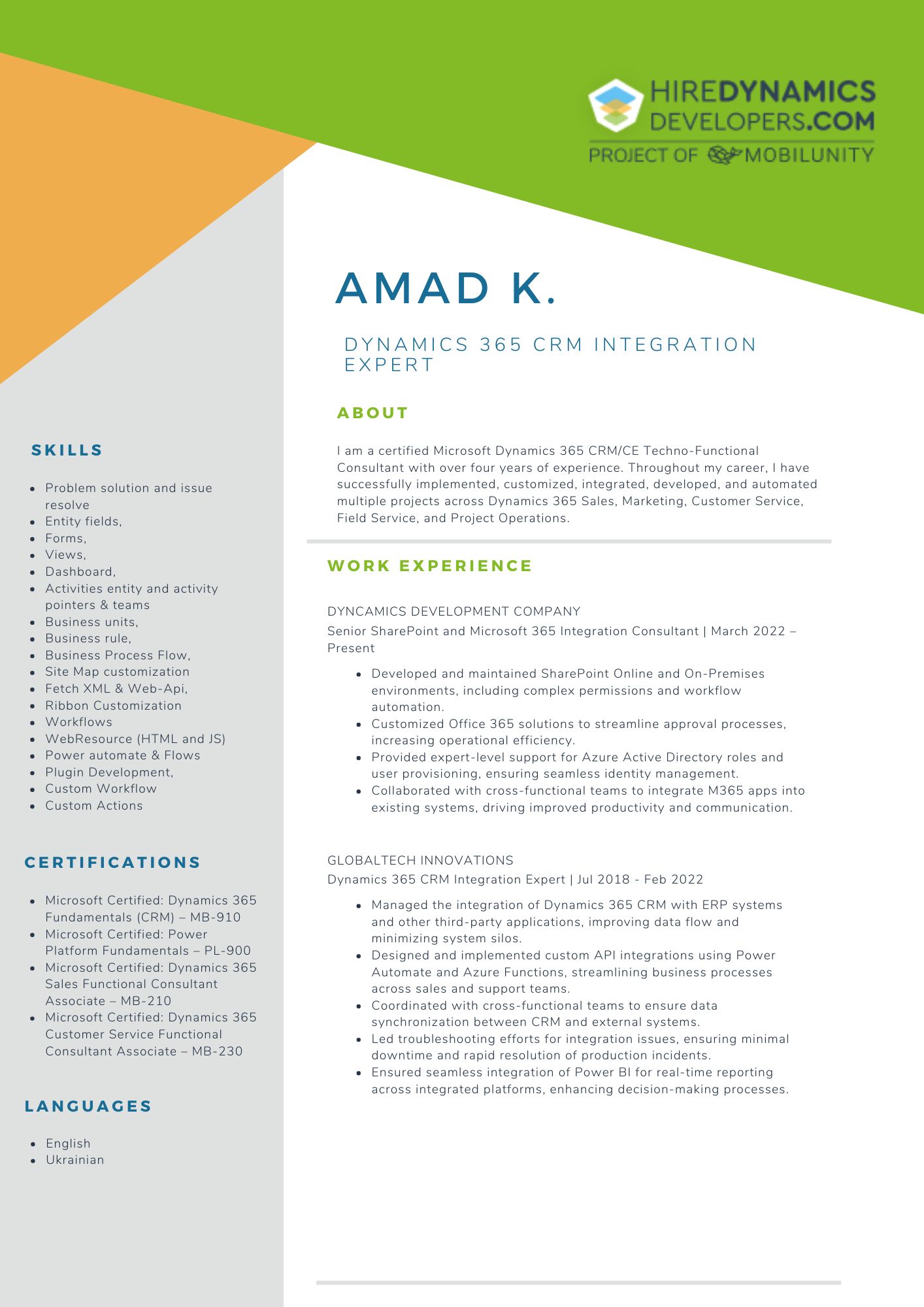
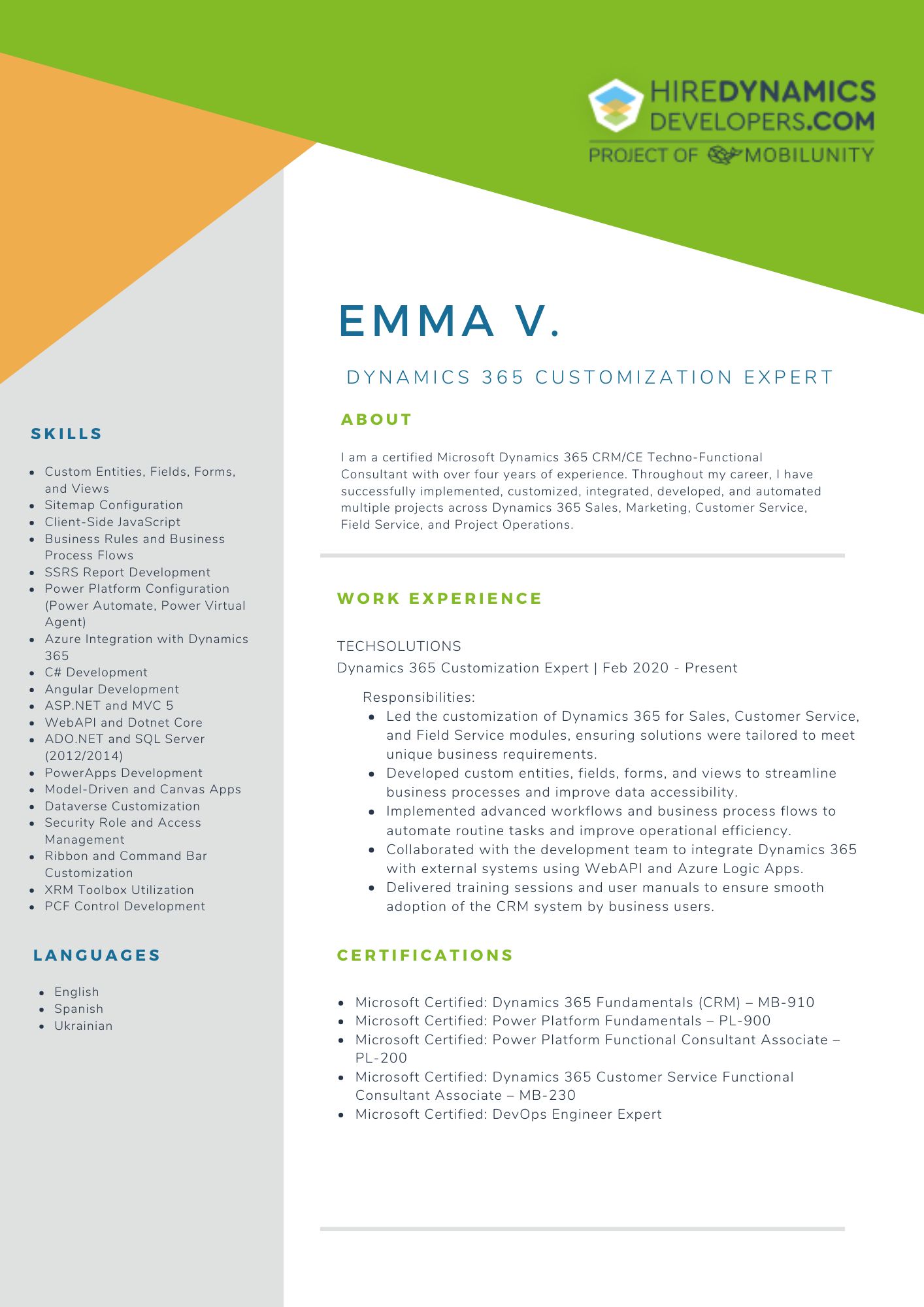

Outline
Imeda U.
10 HOURS / WEEK

Tymur S.
10 HOURS / WEEK
Request Our Services
Want to Get a Guide on Microsoft Dynamics 365 Business Central Implementation? Contact Us for Professional Help!
Your Partner Recognized in Dynamics Community
















